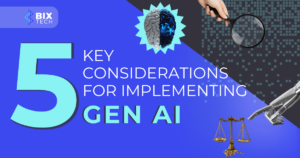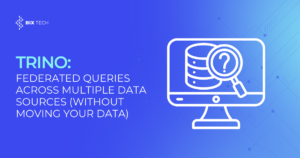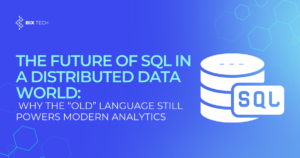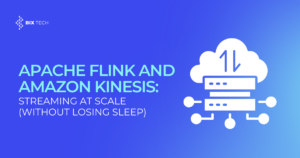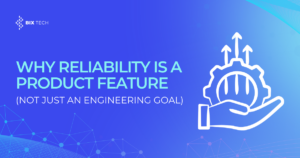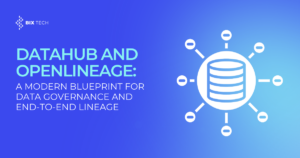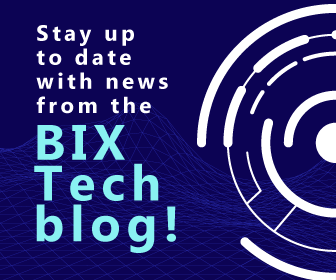Private Blockchains and IoT: The New Frontier for Security, Efficiency, and Cost Reduction

Sales Development Representative and excited about connecting people
The intersection of blockchain technology and the Internet of Things (IoT) is transforming how modern businesses operate. As organizations implement more connected devices and demand real-time, secure, and scalable solutions, private blockchains have emerged as a powerful ally for IoT deployments. But what exactly makes this combination so compelling? Let’s dive into how private blockchains and IoT are shaping the future, driving security, efficiency, and cost savings across industries.
Understanding the Basics: What Are Private Blockchains and IoT?
Before we explore the powerful synergy between private blockchains and IoT, it’s important to clarify what each technology brings to the table.
What Is a Private Blockchain?
A private blockchain is a decentralized digital ledger, but unlike public blockchains (think Bitcoin or Ethereum), participation is restricted to a selected group of organizations or stakeholders. This limited access ensures faster performance, greater control, and enhanced privacy—key attributes for enterprise applications.
Key Features of Private Blockchains:
- Permissioned Access: Only approved participants can join and validate transactions.
- Higher Performance: Transactions are faster due to fewer participants and streamlined consensus mechanisms.
- Customizable Governance: Organizations define their own rules, roles, and security protocols.
What Is the Internet of Things (IoT)?
The IoT is a network of physical devices—ranging from smart thermostats and sensors to industrial robots—that collect, share, and act on data via the internet. By 2025, it’s estimated that there will be over 30 billion connected IoT devices worldwide, generating petabytes of valuable data daily.
IoT Drives:
- Automation in manufacturing
- Smart home and smart city solutions
- Predictive maintenance in industry
- Real-time supply chain insights
Why Combine Private Blockchains and IoT?
While IoT unleashes unprecedented data and automation possibilities, it also presents significant challenges—namely, security, scalability, and trust. Traditional centralized architectures often struggle to keep up. Enter private blockchains.
Enhanced Security and Data Integrity
IoT devices are notoriously vulnerable to cyberattacks. A compromised device can jeopardize the entire network. Private blockchains offer a robust solution:
- Tamper-Proof Records: Every device transaction is recorded on a distributed ledger, making unauthorized changes nearly impossible.
- Traceability: If a device is breached, the immutable audit trail makes it easy to identify the source and scope.
- Role-Based Access: Only trusted entities can interact with the blockchain, reducing the attack surface.
Streamlined Automation with Smart Contracts
Private blockchains enable the use of smart contracts—self-executing code that automates transactions or responses when certain conditions are met. This is a game-changer for IoT:
- Automated Maintenance: Sensors detect a machine fault and trigger a service request automatically.
- Supply Chain Efficiency: Goods reaching a warehouse can prompt instant inventory updates and automated payments.
For a more in-depth look at how automation is impacting modern industry, check out How Intelligent Automation Is Transforming Modern Manufacturing.
Reduced Operational Costs
By eliminating intermediaries and manual data reconciliation, private blockchains cut costs dramatically:
- No Need for Third-Party Verification: Transactions are trusted by design.
- Reduced Fraud and Errors: Immutable records prevent data manipulation and disputes.
- Efficient Data Sharing: Real-time data synchronization across partners reduces delays and paperwork.
Real-World Use Cases: Private Blockchains and IoT in Action
Let’s look at how private blockchains and IoT are already creating value in various sectors.
1. Supply Chain Transparency
A food distributor integrates temperature sensors in refrigerated trucks. Each time a shipment is scanned or a temperature threshold is breached, the event is logged onto a private blockchain. Retailers and regulators access a trusted record of the product’s journey, ensuring safety and compliance.
2. Smart Energy Management
Smart meters in homes and factories track energy production and consumption. Blockchain-based contracts allow households to automatically sell excess solar power to the grid or neighbors, with every transaction securely recorded and settled instantly.
3. Industrial IoT & Predictive Maintenance
Manufacturers embed sensors in heavy equipment. These devices send performance data to a blockchain ledger. When anomalies are detected, smart contracts trigger automatic maintenance requests—reducing downtime and saving on emergency repairs.
4. Healthcare Device Monitoring
Wearable health monitors collect patient data and store it on a private blockchain. Only authorized doctors and insurers can access this information, ensuring privacy and compliance with regulations like HIPAA.
Overcoming Implementation Challenges
While the benefits are clear, integrating private blockchains with IoT isn’t without hurdles:
- Device Constraints: Many IoT devices have limited processing power. Lightweight blockchain protocols and off-chain data storage are essential.
- Interoperability: Ensuring seamless communication between diverse devices and blockchain networks requires standardized protocols.
- Scalability: As IoT networks grow, blockchains must handle massive transaction volumes—private blockchain architectures are better positioned than public counterparts here.
For organizations beginning their journey, a strategic approach is vital. Start with clear business objectives, choose scalable blockchain platforms, and prioritize interoperability.
The Future: Where Is This Trend Heading?
Private blockchains and IoT are poised to redefine digital ecosystems. As 5G and edge computing mature, expect:
- Near real-time blockchain-verified transactions at the edge
- Greater integration with AI for predictive analytics and decision-making
- New business models built on trusted data-sharing between partners
Curious about how emerging tech is shaping business? Explore our article on The Data Science Business Revolution for more insights.
Getting Started: How to Leverage Private Blockchains and IoT
Ready to tap into this powerful combination? Here are some practical steps:
- Identify High-Impact Use Cases: Focus on areas with security, transparency, or automation pain points.
- Engage Stakeholders Early: Collaboration across IT, compliance, and business teams is crucial.
- Select the Right Technology Partners: Look for blockchain solutions with proven IoT integrations and robust security features.
- Plan for Scale: Design systems that can grow as your IoT footprint expands.
Conclusion
The convergence of private blockchains and IoT is unlocking new levels of security, efficiency, and cost reduction for businesses across industries. By leveraging permissioned ledgers, smart contracts, and automated trust, organizations can confidently scale their IoT initiatives and stay ahead in a rapidly evolving digital landscape.
As this trend accelerates, forward-thinking companies that embrace these innovations will be best positioned to thrive. Now’s the time to explore how private blockchains and IoT can propel your business into the future.
Want to stay ahead of the technology curve? Check out our guide to Building a Future-Ready Tech Infrastructure: Strategies for Adapting to Emerging Trends.



